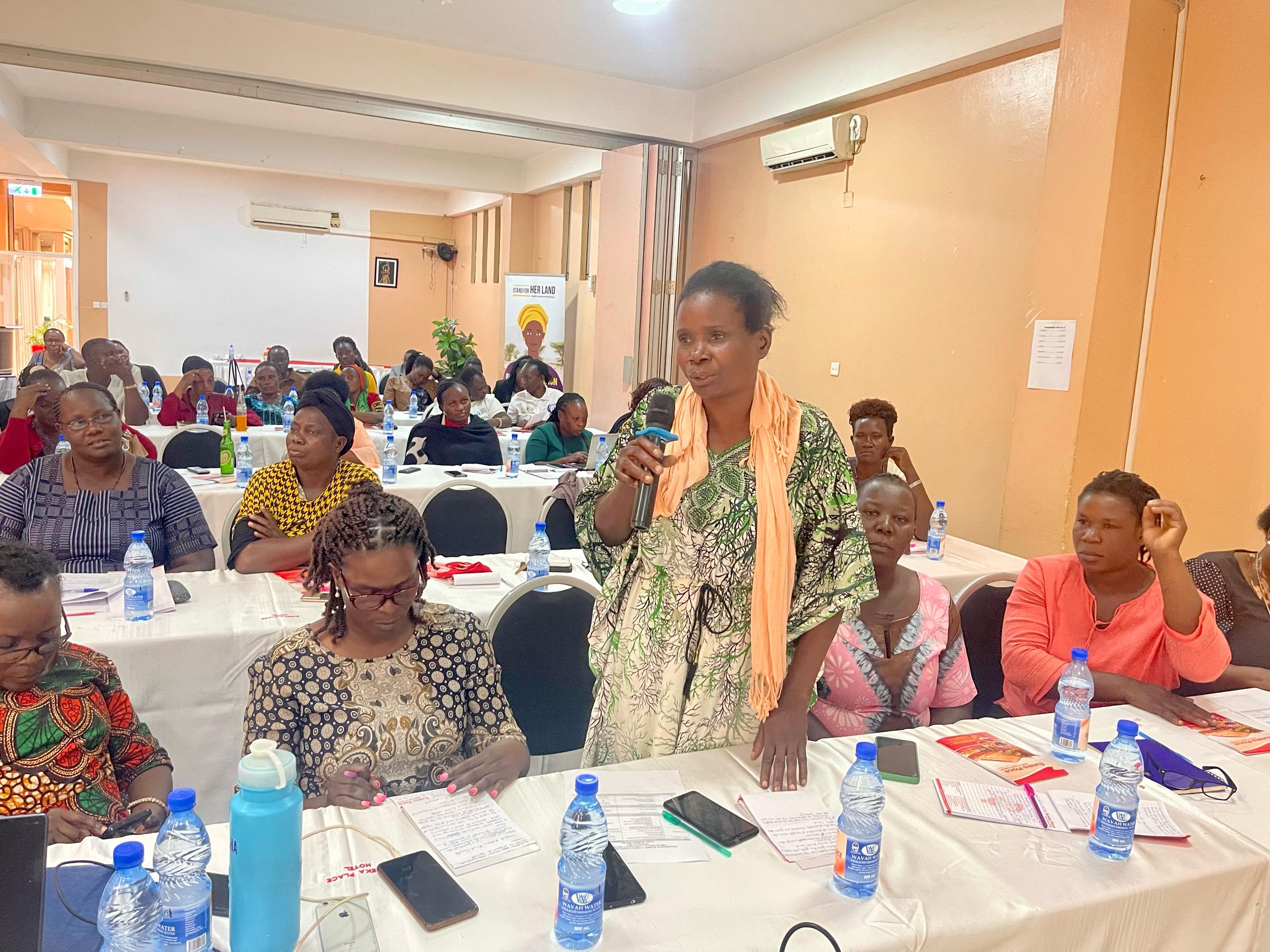
KAMPALA, Uganda – Grassroots women across Uganda are pushing for stronger land ownership rights in the ongoing review of the National Land Policy 2013, citing persistent cultural barriers and legal ambiguities.
During a Ministry of Lands, Housing, and Urban Development consultation meeting at the Eureka Hotel in Kampala on Tuesday, women voiced concerns about customary practices that deny them secure land tenure.
The consultative workshop, convened by the “Stand for Her Land Campaign”, prioritizes advocating for the strengthening of the voice, agency, and participation of grassroots women in land governance.
Maxensia Nakibuuka, a land rights champion, highlighted the discrepancy between women receiving land through inheritance or gifts and their ability to exercise true ownership.
“While women may receive land through inheritance or donations from relatives, the reality is that they are frequently denied true ownership,” Nakibuuka said. “This leaves them vulnerable and without secure land rights, hindering their economic empowerment and security.”
Nakibuuka also raised concerns about the complexities of land succession, questioning the legitimacy of long-delayed claims and the clarity of legal procedures. She pointed to confusion surrounding the Administrator General’s role in managing succession cases, particularly the phrases “clause” and “legal order closure of succession.”
“These terms are unclear to the public, and it’s essential that land rights information is accessible and understandable,” she said. “How can individuals protect their rights if they don’t comprehend the legal processes involved?”
Gloria Lanyero, a land rights champion from Gulu District, called for increased female representation on local land committees, arguing that women’s voices are being suppressed. She urged for at least six positions for women on area land committees and district land boards.
“My primary concern is the underrepresentation of women in land governance,” Lanyero said. “Due to their limited numbers… women’s voices are being suppressed and their ideas are not given equal consideration.”
Lanyero also criticized the lack of proactive community sensitization by government institutions regarding land rights, noting that non-governmental organizations are primarily driving awareness campaigns.
Women also emphasized the need for control over land to pursue commercial agriculture.
Janat Lapat, a resident of Pader, said cultural norms often prevent women from owning land, despite their crucial role in food production.
“While women work hard to utilize the land, we often lack ownership,” Lapat said. “This is rooted in cultural norms that view men as the heirs of assets.”
She added, “We want control over the land, the products from our gardens, and ultimately, ownership. We need to address the challenges women face in accessing and owning land and ensure their aspirations for land use and development are met.”
Some women suggested shared ownership provisions on land titles, allowing both spouses to sign and secure women’s rights.
“If possible, include where both spouses can sign on the land titles so that we as women also have voices. In many cases men die and leave women vulnerable with children after being pushed out by relatives from the marital land,” said Stella Ilukol from Amuria.
Frances Birungi Adong, executive director of the Uganda Community-Based Association for Women and Children Welfare (UCOBAC), said her organization organized grassroots women to participate in the policy review.
“Through this process, we want to ensure we have a good policy that will guide the development of laws that will regulate how land is acquired, used, and managed in the country,” Adong said. “Especially, we want marginalized groups in society like women to participate in this process.”
Mr. Harrison Irumba, Assistant Commissioner, Policy Analysis in the Ministry of Lands, said the meetings aimed to gather grassroots women’s views on the revised policy. He said the ministry has conducted eight regional meetings on the new policy.
Uganda is currently reviewing its National Land Policy of 2013, aiming to address emerging issues, streamline land administration, and promote equitable land access and sustainable land use, with consultations involving various stakeholders.
The Government of Uganda formulated the National Land Policy (NLP) in 2013 with the goal of ensuring efficient, equitable, and optimal utilization and management of Uganda’s land resources for poverty reduction, wealth creation, and socio-economic development.
The policy, drawing its major principles from the 1995 Uganda Constitution, Uganda Vision 2040, and other frameworks like the National Development Plan (NDP), provides a framework for managing land and land-based resources.





